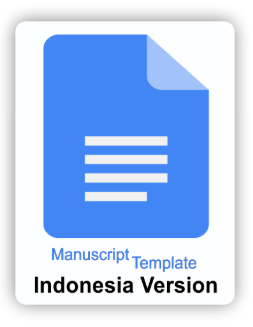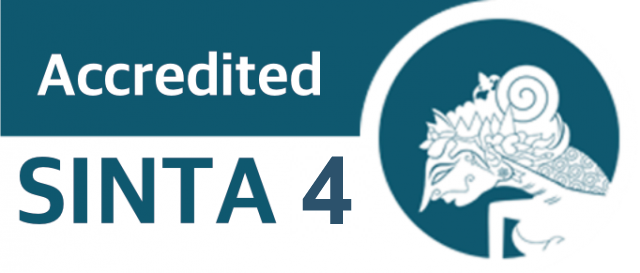Pengaruh Literasi Digital Guru Terhadap Pelaksanaan Pembelajaran Daring Pada Sekolah Menengah Kejuruan di Kabupaten Gowa
DOI:
https://doi.org/10.21831/ep.v5i1.66091Keywords:
guru, literasi digital, pembelajaran daringAbstract
Penelitian ini bertujuan untuk mengetahui pengaruh literasi digital guru terhadap pelaksanaan pembelajaran daring. Penelitian dilaksanakan pada seluruh Sekolah Menengah Kejuruan Negeri di Kabupaten Gowa. Populasi pada penelitian ini adalah guru pegawai negeri sipil yang berjumlah 238 yang tersebar pada 5 Sekolah. Pengambilan sampel menggunakan teknik proporsional random sampling dengan sampel sebanyak 70 guru berdasarkan formula slovin. Teknik pengumpulan data menggunakan kuesioner yang uji validitas isinya menggunakan model pengujian gregory dan uji validitas konstruknya menggunakan teknik confirmatory factor analysis serta pengujian reabilitasnya menggunakan rumus cronbach alpha yang menghasilkan nilai koefisien reliabilitas sebesar 0,98 untuk instrumen literasi digital guru dan nilai koefisien reliabilitas sebesar 0,96 untuk instrumen pelaksanaan pembelajaran daring. Teknik regresi linear sederhana digunakan untuk menganalisis data yang diperoleh. Hasil penelitian mengungkapkan terdapat pengaruh literasi digital guru yang positif dan signifikan terhadap pelaksanaan pembelajaran daring pada SMK Negeri di Kabupaten Gowa, serta besarnya kontribusi atau pengaruh literasi digital guru terhadap pelaksanaan pembelajaran daring yaitu sebesar 48%.
References
Ardiani, F., & Pujiriyanto, P. (2022). Pemanfaatan aplikasi Whatsapp sebagai media pembelajaran daring. Jurnal Epistema, 3(2), 81–90. https://doi.org/10.21831/ep.v3i2.50555
Alghamdi, A. K. H., & Al-Ghamdi, N. A. (2021). Elementary teachers' thoughts about distance education and learning 21st-century skills during covid pandemic. International Journal of Learning, Teaching and Educational Research, 20(3), 33–50. https://doi.org/10.26803/ijlter.20.3.3
Aliyyah, R. R., Reza, R., & Achmad, S. (2020). The perceptions of primary school teachers of online learning during the COVID-19 pandemic period: A case study in Indonesia. Journal of Ethnic and Cultural Studies, 7(2), 90–109. http://dx.doi.org/10.29333/ejecs/388
Arifianto, C. F., Mutawali, & Subekti, H. (2021). The Teachers' Online Readiness: an evaluation of Online Learning during Covid-19 Pandemic in Indonesia. International Journal of Social Learning (IJSL), 1(3), 270–282. https://doi.org/10.47134/ijsl.v1i3.63
Azwar, S. (2019). Reliabilitas dan Validitas. Yogyakarta: Pustaka Pelajar.
Cetin, E. (2021). Digital storytelling in teacher education and its effect on the digital literacy of pre-service teachers. Thinking Skills and Creativity, 39, 100760. https://doi.org/10.1016/j.tsc.2020.100760
Cruzado, C., & Santiago, R. (2021). Teacher digital literacy: The indisputable challenge after covid-19. Sustainability (Switzerland), 13(4), 1–29. https://doi.org/10.3390/su13041858
Dharma, S. (2022). Pengaruh kecakapan literasi digital terhadap kinerja guru sekolah menengah kejuruan di Kabupaten Gowa. Manajemen Pendidikan, 17(2), 117–129. https://doi.org/10.23917/jmp.v17i2.17569
Dhawan, S. (2020). Online learning: A panacea in the time of COVID-19 crisis. Journal of Educational Technology Systems, 49(1), 5–22. https://doi.org/10.1177/0047239520934018
Febrianto, P. T., Mas'udah, S., & Megasari, L. A. (2020). Implementation of online learning during the covid-19 pandemic on Madura Island, Indonesia. International Journal of Learning, Teaching and Educational Research, 19(8), 233–254. https://doi.org/10.26803/ijlter.19.8.13
Guinnes, C., & Fulton, C. (2019). Digital literacy in higher education: A case study of student engagement with e-tutorials using blended learning. Journal of information technology education: Innovations in practice, 18(4), 477–551. https://doi.org/10.28945/4190
Gurevich, I., Stein, H., & Gorev, D. (2017). Tracking professional development of novice teachers when integrating technology in teaching mathematics. Computers in the Schools, 34(4), 267–283. https://doi.org/10.1080/07380569.2017.1387470
Hasse, C. (2017). Technological literacy for teachers. Oxford Review of Education, 43(3), 365–378. https://doi.org/10.1080/03054985.2017.1305057
Hossein-Mohand, H., Trujillo-Torres, J. M., Gómez-García, M., Hossein-Mohand, H., & Campos-Soto, A. (2021). Analysis of the use and integration of the flipped learning model, project-based learning, and gamification methodologies by secondary school mathematics teachers. Sustainability (Switzerland), 13(5), 1–18. https://doi.org/10.3390/su13052606
Kemdikbud. (2017). Konsep literasi digital dalam kurikulum 2013. Jakarta: Pusat Kurikulum dan Perbukuan Kemdikbud.
Kemdikbud. (2020). Analisis survei cepat pembelajaran dari rumah dalam masa pencegahan covid-19. Jakarta: Kemterian Pendidikan dan Kebudayaan.
Koivuniemi, M., Järvenoja, H., & Järvelä, S. (2018). Teacher education students' strategic activities in challenging collaborative learning situations. Learning, Culture and Social Interaction, 19, 109–123. https://doi.org/10.1016/j.lcsi.2018.05.002
Mameli, C., Grazia, V., & Molinari, L. (2020). Agency, responsibility and equity in teacher versus student-centred school activities: A comparison between teachers' and learners' perceptions. Journal of Educational Change, 21(2), 345–361. https://doi.org/10.1007/s10833-019-09366-y
Nabhan, S. (2021). Pre-service teachers' conceptions and competences on digital literacy in an EFL academic writing setting. Indonesian Journal of Applied Linguistics, 11(1), 187–199. https://doi.org/10.17509/ijal.v11i1.34628
Ngabiyanto, Nurkhin, A., Mukhibad, H., & Harsono. (2021). E-learning evaluation using general extended technology acceptance model approach at schools in COVID-19 pandemic. European Journal of Educational Research, 10(3), 1171–1180. https://doi.org/10.12973/EU-JER.10.3.1171
Maharani, S., Rosmiati, & Nasori. (2021). Profesionalisme kinerja guru dan kemampuan literasi digital guru berpengaruh terhadap kualitas pembelajaran daring SMK Kota Jambi. Jurnal Ilmiah Dikdaya, 11(2), 161–170. https://doi.org/10.33087/dikdaya.v11i2.211
Peechapol, C., Na-Songkhla, J., Sujiva, S., & Luangsodsai, A. (2018). An exploration of factors influencing self-efficacy in online learning: A systematic review. International Journal of Emerging Technologies in Learning, 13(9), 64–86. https://doi.org/10.3991/ijet.v13i09.8351
Pongsakdi, N., Kortelainen, A., & Veermans, M. (2021). The impact of digital pedagogy training on in-service teachers' attitudes towards digital technologies. Education and Information Technologies, 26(5), 5041–5054. https://doi.org/10.1007/s10639-021-10439-w
Taskıran, C., & Salur, M. (2021). Analysis of the opinions of social studies teachers on digital literacy skills. World Journal of Education, 11(2), 72–84. https://doi.org/10.5430/wje.v11n2p72
Zahorec, J., Haskova, A., & Munk, M. (2019). Teachers' professional digital literacy skills and their upgrade. European Journal of Contemporary Education, 8(2), 378–393. https://doi.org/10.13187/ejced.2019.2.378
Downloads
Published
How to Cite
Issue
Section
License
Epistema allows readers to read, download, copy, distribute, print, search, or link to its articles' full texts and allows readers to use them for any other lawful purpose. The journal allows the author(s) to hold the copyright without restrictions. Finally, the journal allows the author(s) to retain publishing rights without restrictions
- Authors are allowed to archive their submitted articles in an open access repository
- Authors are allowed to archive the final published article in an open access repository with an acknowledgment of its initial publication in this journal

This work is licensed under a Creative Commons Attribution-ShareAlike 4.0 Generic License.











